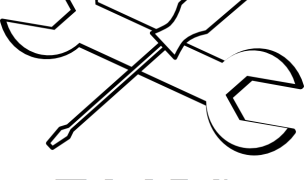 20 Terms
20 TermsHome > Terms > English, UK (UE) > Battle of Vienna, Virginia
Battle of Vienna, Virginia
The Battle of Vienna, Virginia was a battle between a Union Army force of 271 men of the 1st Ohio Infantry and a Confederate States Army force of about 750 men, in the village of Vienna, Virginia in Fairfax County, Virginia, during the beginning of the American Civil War.
On June 16, 1861, a Union force of Connecticut infantry under Brig. Gen. Daniel Tyler rode over about 17 miles (27 km) of the Alexandria, Loudon and Hampshire Railroad line between Alexandria, Virginia and two miles (3 km) past Vienna, Virginia. They reported the line clear, although one soldier had been wounded by a shot from ambush. Confederate forces were in the area, however, and it was apparent to Union Maj. Gen. Irvin McDowell who was in charge of the department that the railroad would not remain safe without a guard force, especially because he had received information that the Confederates planned to obstruct it. On June 17, 1861, McDowell sent Brig. Gen. Schenck with the 1st Ohio Infantry under the immediate command of Col. Alexander McDowell McCook[1] to expand the Union position in Fairfax County. Schenck took six companies over the Alexandria, Loudon and Hampshire Railroad line, dropping off detachments to guard railroad bridges between Alexandria, Virginia and Vienna, Virginia. As the train approached Vienna, about 4 miles (6.4 km) north of Fairfax Court House and 15 miles (24 km) from Alexandria, 271 officers and men remained with the train.
As the train rounded a curve within 0.25 miles (0.40 km) of Vienna, one of the men spotted some Confederate cavalrymen on a nearby hill. As the Ohio soldiers prepared to shoot at the horsemen, the Confederates fired their cannons from their hiding place around the curve. The Union force suffered several casualties but were spared from incurring even more by the slightly high initial cannon shots and by quickly jumping from the slow–moving train and either running into nearby woods or moving into protected positions near the cars.
Schenck ordered Lieutenant William H. Raynor to go back to the engine and have the engineer take the train out of range in the other direction. Schenck quickly followed Raynor. Raynor had to help loosen the brakes. Because the brakeman had uncoupled most of the cars, the engineer left them. He did not stop for the Union soldiers to catch up but continued all the way back to Alexandria. Schenck now had no means of communication and had to have the wounded men carried back to their camp in blankets by soldiers on foot. The regiment's medical supplies and instruments had been left on the train.
Many of the Union infantrymen took shelter behind the cars and tried to return fire against the Confederate force amid a confusion of conflicting orders. McCook reorganised many of them in the woods. The two forces were slightly out of effective musket range and few shots were taken by either side.
As darkness fell, the Union force was able to retreat and to elude Confederate cavalry pursuers in the broken terrain. The Confederate pursuit also was apparently called off early due to apprehension that the Union force might be only the advance of a larger body of troops and because the Confederate force was supposed to return to their post that night. Confederates took such supplies and equipment as were left behind and burned a passenger car and five platform cars that had been left behind. When the Union commanders at Arlington got word of the attack, they sent waggons to bring back the wounded and the dead but these did not reach the location of the fighting. The next day, a Union sympathiser picked up the bodies of six of the Ohio men and brought them into the Union camp.
- Part of Speech: proper noun
- Synonym(s):
- Blossary:
- Industry/Domain: History
- Category: American history
- Company:
- Product:
- Acronym-Abbreviation:
Other Languages:
Member comments
Terms in the News
Featured Terms
phylum placozoa
Macroscopic, flattened marine animals, composed of ventral and dorsal epithelial layers enclosing ...
phylum cnidaria
Cnidarians. Hydras, hydroids, jellyfish, sea anemones, and corals. Free-swimming or sessile, with ...
share a term with millions
Share a term with millions of users around the world and increase your online visibility.Share a ...
oak
Genus native to the Northern Hemisphere with spirally arranged leaves, catkins for flowers and ...
Everest
The last but not least mount Everest. The Earth's highest mountain, with a peak at 8,848 metres ...
aglaonema
Genus of about 20 species of usually rhizomatous, evergreen perennials from tropical forest in Asia. ...
Robojelly
Robojelly is a hydrogen-powered robot desgined in the United States that moves through the water ...
Ferdinand Porsche
Ferdinand Porsche (3 September 1875 – 30 January 1951) was an Austrian-German automotive engineer ...
Marzieh Afkham
Marzieh Afkham, who is the country’s first foreign ministry spokeswoman, will head a mission in east ...
define1
Share a term with millions of users around the world and increase your online visibility.Share a ...
Contributor
Featured blossaries
Browers Terms By Category
- Cultural anthropology(1621)
- Physical anthropology(599)
- Mythology(231)
- Applied anthropology(11)
- Archaeology(6)
- Ethnology(2)
Anthropology(2472) Terms
- Cheese(628)
- Butter(185)
- Ice cream(118)
- Yoghurt(45)
- Milk(26)
- Cream products(11)
Dairy products(1013) Terms
- Bridge(5007)
- Plumbing(1082)
- Carpentry(559)
- Architecture(556)
- Flooring(503)
- Home remodeling(421)
Construction(10757) Terms
- Health insurance(1657)
- Medicare & Medicaid(969)
- Life insurance(359)
- General insurance(50)
- Commercial insurance(4)
- Travel insurance(1)
Insurance(3040) Terms
- General astrology(655)
- Zodiac(168)
- Natal astrology(27)






